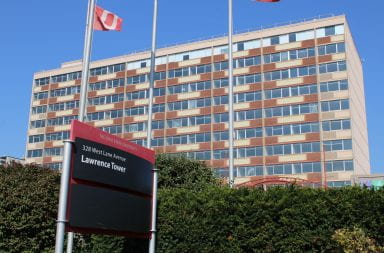While a single experience of bad restaurant service is enough to clue any person in on the dissatisfaction of food service employees, there is now quantitative evidence to back this idea up. A research study by Murat Hancer and Thomas George, conducted within Ohio State’s College of Human Ecology, found half of restaurant employees have low levels of satisfaction with their jobs.
To clarify the definition of “low satisfaction,” George said, “This doesn’t mean 50 percent of the employees are miserable or dissatisfied with their jobs, it simply means they expressed a lower level of satisfaction than others,” according to The Lantern. Regardless of the framing of the survey questions, the point stands that many restaurant employees are unhappy with their jobs, and this often is reflected not necessarily in bad service, but angry or careless service.
Though there are many complaints typical of restaurant employees, there are two major ones which form the basis of post-work conversation: Customers’ rudeness in their interaction with employees, and the arbitrarial nature of tipping – many servers believe they are never tipped adequately for the quality of service they provide. Bad service is often an immediate byproduct of the former complaint and occasionally a byproduct of the latter complaint, though this is taken out on every customer other than the one who left the bad tip.
However, these complaints leading to bad service cannot be fixed by better informing society about politeness toward and tipping of servers – the problem is the nature of the restaurant business itself, which has a very rare aspect: tipping.
While America is not unusual in having tipping, it is unusual in that the majority of the income of its restaurant workers is based on gratuity, as opposed to a set rate. The minimum wage for restaurant employees in Ohio, for instance, is $2.01 – significantly less than any other type of employment. This is a great accomplishment for restaurant owners, who are the greediest bunch of businesspeople in America. They have actually figured out a scheme that allows them to defer the cost of paying their employess onto their customers. In theory, this should have some merit: The harder a person works, the more he or she should be paid, and the customers would know more about how hard their server worked than the owner.
However, theory is merely that – theory. In actuality, people do not often leave a tip sufficient for the effort a server puts into working the table. When this happens, servers become skeptical of other tables, enticing them to work less because they feel no matter how hard they work, they will still not be compensated properly.
The minimum wage for servers needs to be drastically increased, though it could lean on a lesser tip system which would still reward better service. If a server knows at the end of a night he or she will come home with a respectable amount of money, a bad tip or lack of a tip would not discourage the server as much as it currently does.
With a similar mindset, if a customer is being rude to a server, the server could justly give the customer deservedly worse service without having to worry about suffering a serious financial blow. People would get the service their manners deserve, and servers would receive more appropriate compensation.


